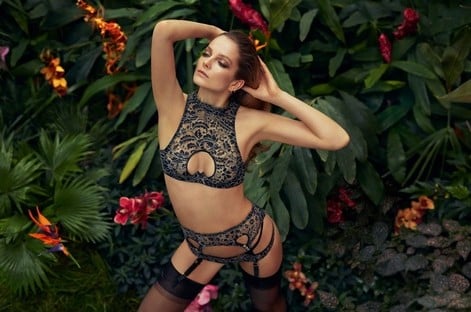
Image: Courtesy of V&A. Photographer: Sebastian Faena, Model: Eniko Mihalik.
Display figure and advertising card for Y-front pants.
Image: Courtesy of “Undressed: A Brief History of Underwear” at V&A.
To the dismay of many, the Victoria & Albert Museum have banned photography and sketching at a new temporary exhibition titled “Undressed: A Brief History of Underwear.” The show features an assortment of undergarments and related media from the 18th century onward, and is conveniently sponsored by Agent Provocateur and Revlon.
Granted, this isn’t the first time the V&A implemented a ban on capturing images. According to the Guardian, the museum instated a similar rule in their 2013 David Bowie exhibition to help with the flow of visitors.
But in an email to artnet News, Lucy Hayes, a press officer for V&A, revealed that these restrictions are the result of specific legal contingencies. She didn’t provide further details, but did note that “visitors to the V&A are welcome to sketch within the permanent galleries,” provided that “loan conditions permit.”
“Undressed: A Brief History of Underwear.”
Image: Courtesy of V&A. Photographer: Sebastian Faena, Model: Eniko Mihalik.
Around 60 of the 200 objects on display are now part of the museum’s permanent collection.
The image above, which is included in the heavily-branded exhibition, depicts a model wearing the ‘Tamila’ lingerie set from Agent Provocateur’s Soirée collection, where the bra alone costs $890. In addition, a pair of Floral Tie Knickers “created exclusively for the V&A exhibition” is available in the gift shop.
Silk satin, lace and whalebone corset.
Photo: Courtesy of Victoria and Albert Museum.
Of course, museum policies on photography and sketching in exhibitions vary across the board—whether they are corporate-sponsored ventures or not. Museums known to ban selfie sticks, for instance, include Boston’s Museum of Fine Arts, Dia: Beacon, and the Museum of Modern Art.
Others, however, like Tate, the Louvre, and the National Gallery, lifted their decades-old photography bans so long as flash is suppressed.